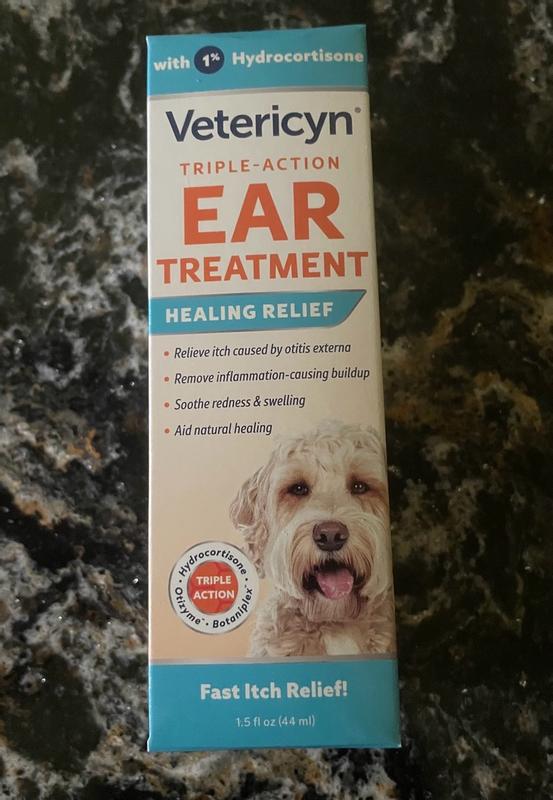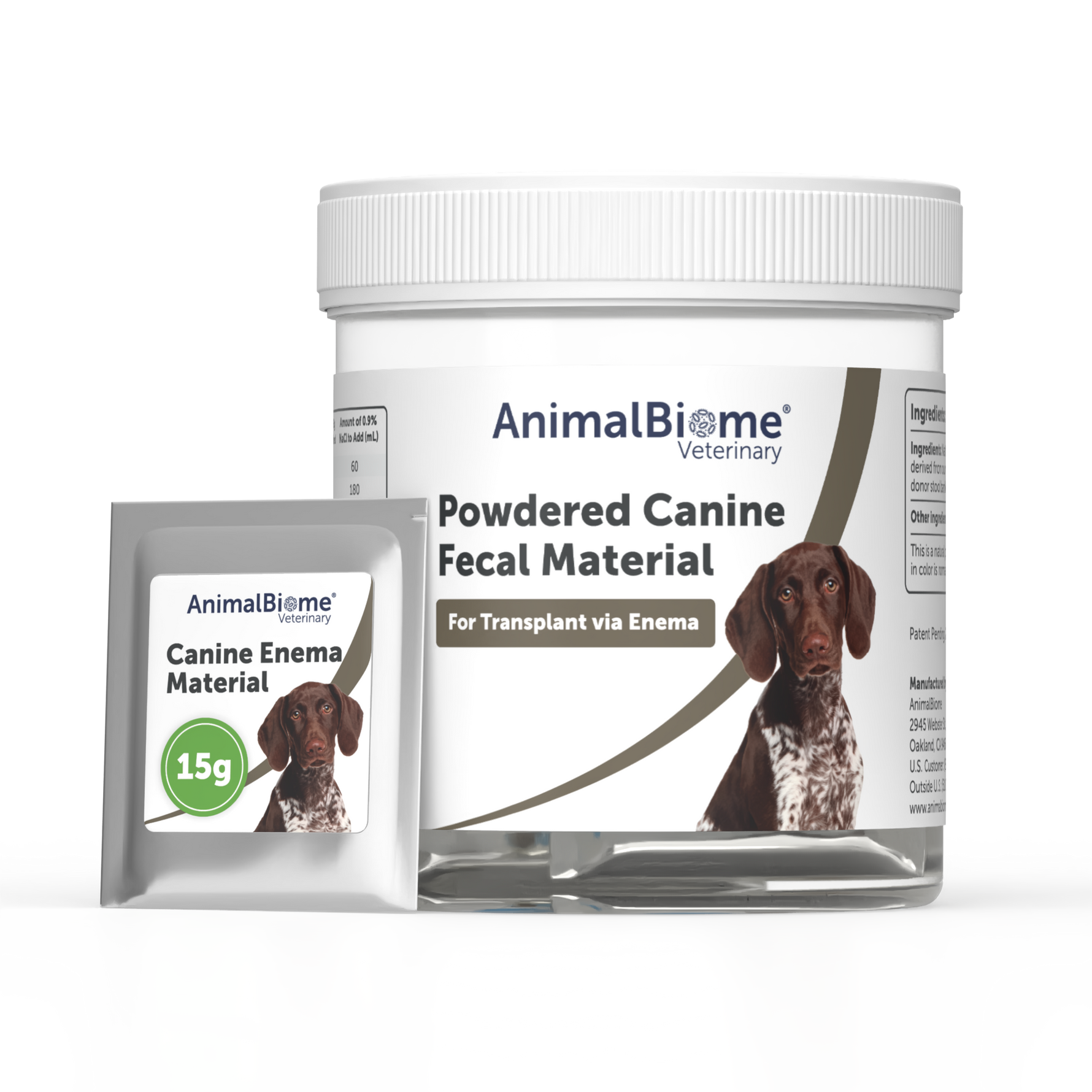If your dog is scratching their ears or shaking their head a lot, you might be worried about an ear infection. You want to help your furry friend feel better quickly, but what exactly do vets give dogs for ear infections?
Understanding the treatments your vet recommends can make a big difference in how fast your dog heals and how comfortable they feel. Keep reading to discover the common medicines and care tips vets use to tackle ear infections, so you can help your dog get back to their happy, playful self.
Common Causes Of Dog Ear Infections
Understanding the common causes of ear infections in dogs is key to spotting problems early and getting the right treatment. Ear infections can make your dog uncomfortable and lead to more serious issues if untreated. Knowing what triggers these infections helps you protect your furry friend better.
Bacterial Infections
Bacteria are one of the top reasons dogs develop ear infections. These tiny organisms thrive in warm, moist environments like your dog’s ear canal. If your dog scratches or shakes their head often, it could be a sign that bacteria are causing irritation.
Cleaning your dog’s ears regularly can help prevent bacteria buildup. However, if you notice redness, swelling, or a bad smell, it’s time to see your vet. They’ll likely prescribe antibiotic drops to clear the infection quickly.
Yeast Overgrowth
Yeast is a fungus that naturally lives in small amounts in your dog’s ears. But sometimes, it grows out of control, leading to an infection. Dogs with floppy ears or those who swim frequently are more prone to yeast infections because moisture gets trapped inside.
Yeast infections often cause a distinctive musty odor and a dark, crumbly discharge. Your vet might recommend antifungal ear drops or ointments to stop the yeast from multiplying. Have you noticed your dog scratching more after bath time or swimming?
Allergies And Irritants
Allergies are a silent cause of many ear problems in dogs. Whether from food, pollen, or household chemicals, allergens can inflame your dog’s ear canals. This irritation makes ears itchy and vulnerable to infections.
If your dog frequently scratches their ears or rubs them against furniture, allergens could be the culprit. Your vet may suggest allergy testing or special shampoos to reduce inflammation and prevent infections. What changes have you made to your dog’s environment to reduce allergens?
Ear Mites And Parasites
Ear mites are tiny parasites that burrow into your dog’s ear canal. They cause intense itching and discomfort, often leading to secondary infections. These mites are contagious and can spread quickly among pets.
Look out for black or brown debris that looks like coffee grounds in your dog’s ears. Your vet will provide medication to kill the mites and soothe your dog’s ears. Have you checked your dog’s ears recently for these tiny invaders?
Symptoms Of Ear Infections In Dogs
Recognizing the symptoms of ear infections in dogs early can save your furry friend from discomfort and potential complications. Ear infections are quite common, but their signs might be easy to overlook if you don’t know what to watch for. Paying attention to both physical signs and behavioral changes helps you catch the problem before it worsens.
Physical Signs
One of the clearest indicators of an ear infection is visible redness inside your dog’s ear. You might also notice swelling or a bad odor coming from the ear canal. Sometimes, there’s a dark discharge that looks like coffee grounds or pus.
Dogs with ear infections often shake their heads or scratch their ears frequently. You might see them rubbing their ears against furniture or the floor to relieve itching. If your dog’s ears are warm to the touch, that’s another strong hint an infection is brewing.
Behavioral Changes
Dogs in pain often act differently. If your usually cheerful dog becomes irritable or withdrawn, ear discomfort could be the cause. They might avoid being touched around the head or ears, which is a clear sign they’re hurting.
Have you ever noticed your dog tilting its head to one side? This quirky behavior can mean they’re trying to ease the pressure or pain inside their ear. Dogs may also lose their balance or seem clumsy when infections affect their inner ear.
Watching your dog’s behavior closely can reveal clues you might miss just by looking. What changes have you seen that made you suspect an ear infection in your dog?
Veterinary Diagnosis Methods
Understanding how vets diagnose ear infections in dogs helps you appreciate the care your furry friend receives. Accurate diagnosis is crucial because it guides the treatment plan, ensuring quick relief and preventing complications. Let’s look at the key methods vets use to pinpoint the exact cause of your dog’s ear problem.
Physical Examination
Your vet starts by closely inspecting your dog’s ears. They look for redness, swelling, discharge, and any foul smell—signs that indicate an infection. By gently examining the ear canal with an otoscope, they can see deeper inside to check for inflammation or foreign objects.
Have you noticed your dog scratching or shaking its head? These symptoms often prompt vets to perform this thorough check. Physical exams also help rule out other issues like ear mites or allergies, which can mimic infections.
Ear Swab And Cytology
Next, vets often take a small sample from your dog’s ear using a swab. This sample is examined under a microscope to identify bacteria, yeast, or parasites causing the infection. Cytology offers quick results and helps vets decide if the infection is bacterial, fungal, or mixed.
By knowing what’s in the ear, treatment becomes more targeted. You might wonder why this step matters so much—without it, vets might prescribe the wrong medication, which can delay healing.
Culture And Sensitivity Tests
If the infection is severe or doesn’t improve, vets may perform culture and sensitivity testing. This involves growing the bacteria from the ear swab in a lab to identify the exact strain. Then, they test which antibiotics or antifungal medications work best against that strain.
This test takes longer but is essential when your dog’s ear infection resists initial treatments. It ensures your pet gets the most effective medicine, reducing the risk of antibiotic resistance. Have you ever wondered why some infections just won’t clear up? This test could be the answer.

Credit: vetericyn.com
Medications Vets Commonly Prescribe
When your dog suffers from an ear infection, vets rely on specific medications to target the root cause and provide relief. These medicines not only fight infection but also reduce pain and inflammation. Understanding what vets commonly prescribe helps you manage your dog’s treatment better and recognize the importance of following through with the full course.
Antibiotics For Bacterial Infections
Bacterial ear infections are common in dogs, especially those with floppy ears or allergies. Vets often prescribe topical or oral antibiotics to kill the bacteria causing the problem. Medications like neomycin, gentamicin, or amoxicillin are typical choices, depending on the infection’s severity.
Have you noticed your dog scratching or shaking its head more than usual? It’s a sign to get a vet’s opinion quickly, as untreated bacterial infections can worsen fast.
Antifungal Treatments
Fungal infections, such as yeast overgrowth, can also lead to painful ear issues. Vets prescribe antifungal drops or ointments containing agents like miconazole or clotrimazole to clear the infection. These medicines restore the ear’s natural balance and stop the itching and odor.
Applying these treatments regularly as directed is crucial. Missing doses can allow the fungus to come back stronger.
Anti-inflammatory Drugs
Inflammation often accompanies ear infections, causing swelling and discomfort. Vets may recommend corticosteroids or non-steroidal anti-inflammatory drugs (NSAIDs) to reduce this inflammation. These drugs help your dog feel more comfortable while the infection is being treated.
Have you ever seen how quickly swelling can make your dog’s ear look red and puffy? Anti-inflammatory meds work fast to calm this, so your pet can stop scratching and start healing.
Ear Cleaning Solutions
Cleaning the ear is a vital part of treatment. Vets often provide or recommend ear cleaning solutions that help remove debris, wax, and discharge. These solutions prepare the ear for medication and prevent further infections.
Regular cleaning, as your vet advises, can prevent infections from coming back. But avoid using over-the-counter products without veterinary guidance, as some can irritate your dog’s ear even more.
How Treatments Work
Treating a dog’s ear infection involves several steps that work together to clear the infection and restore ear health. Vets use specific medicines and care techniques. These treatments focus on eliminating the cause, easing discomfort, and helping the ear heal fully.
Targeting Infection Causes
Vets often give antibiotics or antifungal medicines. These medicines kill bacteria or fungi causing the infection. Sometimes ear infections result from mites or allergies. In such cases, vets use special treatments to remove these triggers. Cleaning the ear gently helps remove debris and discharge. This keeps the medicine effective and the ear clear.
Reducing Inflammation And Pain
Ear infections cause swelling and pain. Vets prescribe anti-inflammatory drugs to reduce this swelling. These drugs also help soothe the ear and lower discomfort. Pain relief medicines may be included to make dogs feel better during healing. Reducing inflammation stops further damage inside the ear.
Promoting Healing
Healing is the final goal of treatment. Vets may recommend ear drops with healing agents. These drops help repair damaged skin inside the ear canal. Keeping the ear dry and clean supports quick healing. Follow-up visits ensure the infection clears completely and the ear returns to normal.

Credit: vetericyn.com
Home Care Tips During Treatment
Taking care of your dog’s ears during treatment is crucial for quick healing. Proper home care supports the medicine vets provide. It also helps prevent further infections or discomfort. Follow these simple tips to ensure your dog’s ears heal well.
Proper Medication Application
Use the medicine exactly as the vet instructs. Clean your hands before and after applying drops or ointments. Gently lift your dog’s ear flap and place the medicine deep inside. Avoid touching the dropper to the ear to keep it clean. Massage the base of the ear to spread the medication. Keep your dog calm during this process for better results.
Keeping Ears Dry And Clean
Moisture can worsen ear infections. Wipe your dog’s ears with a soft, dry cloth after walks or baths. Avoid using cotton swabs inside the ear canal. Use only vet-approved ear cleaners if needed. Keep your dog away from water until the infection clears. A dry environment helps the medicine work better.
Monitoring For Improvement
Watch your dog’s behavior and ear condition daily. Notice if redness, swelling, or odor decreases. Check for less scratching or head shaking. If symptoms persist or worsen after a few days, contact your vet. Timely follow-up ensures proper healing and prevents complications.
Preventing Future Ear Infections
Preventing future ear infections in dogs is key to keeping them healthy and comfortable. Ear infections can be painful and cause ongoing problems if untreated. Simple habits and care routines can reduce the chance of infections coming back. These practices help maintain clean, dry ears and address common causes of infection.
Regular Ear Cleaning
Cleaning your dog’s ears regularly helps remove dirt, wax, and moisture. Use a vet-approved ear cleaner made for dogs. Gently wipe the outer ear with a soft cloth or cotton ball. Avoid using cotton swabs deep inside the ear canal to prevent injury. Regular cleaning stops bacteria and yeast from growing.
Managing Allergies
Allergies often cause ear infections by irritating the skin inside the ear. Identify and reduce exposure to allergens like certain foods, pollen, or dust. Your vet can recommend allergy tests or special diets. Managing allergies lowers inflammation and prevents infection triggers.
Routine Vet Check-ups
Regular visits to the vet allow early detection of ear problems. Your vet can clean ears professionally and check for hidden infections. They provide advice on ear care tailored to your dog’s needs. Routine check-ups keep your dog’s ears healthy and infection-free.

Credit: www.amazon.ca
When To Seek Immediate Veterinary Care
Knowing when to seek immediate veterinary care for your dog’s ear infection is vital. Some infections worsen quickly and need prompt attention. Early action can prevent serious complications and pain for your pet.
Watch for clear signs that the infection is severe or not improving. Acting fast helps your dog recover sooner and avoids long-term damage.
Signs Of Severe Infection
- Swelling or redness around the ear
- Foul odor coming from the ear canal
- Excessive scratching or head shaking
- Discharge that is thick, yellow, or bloody
- Visible sores or scabs on or inside the ear
- Signs of pain when touching the ear
- Fever or lethargy accompanying ear symptoms
These symptoms may mean the infection has spread or become serious. Immediate veterinary care can help stop further damage.
Lack Of Response To Treatment
- No improvement after 3 to 5 days of medication
- Symptoms getting worse despite treatment
- Repeated infections after finishing antibiotics
- Persistent discomfort or pain in the ear
If treatment does not help, a vet needs to reassess your dog. The infection might require different medicines or tests to find the cause.
Frequently Asked Questions
What Medications Do Vets Use For Dog Ear Infections?
Vets typically prescribe antibiotic or antifungal ear drops to treat bacterial or yeast infections. Sometimes, oral medications are needed for severe cases. Anti-inflammatory drugs may also be given to reduce pain and swelling. Treatment depends on the infection type and severity.
How Long Does Vet Treatment Take For Ear Infections?
Treatment usually lasts 7 to 14 days, depending on infection severity. Mild infections may clear sooner, while severe cases need longer care. Follow your vet’s instructions precisely to ensure full healing and prevent recurrence.
Can Vets Treat Dog Ear Infections At Home?
Vets provide medications and cleaning instructions for home care. Regularly applying prescribed drops and cleaning ears helps heal the infection. Never use human medicines or unapproved remedies without veterinary guidance, as this can worsen the condition.
Are Ear Infections In Dogs Contagious To Humans?
Most dog ear infections are not contagious to humans. They are caused by bacteria, yeast, or allergies specific to dogs. However, good hygiene is advised when handling infected ears to avoid any secondary infections.
Conclusion
Ear infections in dogs need quick care. Vets offer effective treatments. They choose antibiotics and antifungal solutions based on infection type. Pain relief is often prescribed to soothe discomfort. Regular check-ups ensure recovery and prevent future issues. Proper ear cleaning helps maintain ear health.
Early intervention minimizes complications, keeping your dog happy. Always follow vet advice for best results. Your dog’s well-being depends on timely attention. Ear health is crucial for overall wellness. Stay informed and proactive to support your furry friend’s health. Keep your dog’s ears clean and dry.
Your pet deserves the best care.







